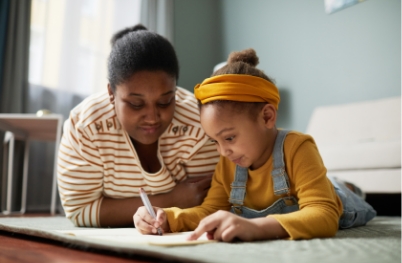
Learning how to improve co-parenting skills is one of the most valuable steps you can take after separation or divorce. While parenting apart comes with its own set of challenges, developing a cooperative, respectful approach can make a significant difference in your child’s emotional stability and your peace of mind. The Center for Divorce Education offers practical strategies to help foster effective co-parenting built on mutual understanding, consistency, and shared responsibility.
Why Improving Co-Parenting Skills Matters
When parents are aligned in their parenting approach, even from separate households, children benefit from a greater sense of security, reduced stress, and fewer behavioral problems. Effective co-parenting promotes consistency, limits conflict exposure, and encourages a collaborative mindset that keeps your child's needs at the forefront.
But improving co-parenting doesn’t mean being best friends with your ex. It’s about learning to communicate constructively, resolving issues with minimal friction, and adapting your parenting arrangements as your child’s needs evolve.
1. Strengthen Communication With Your Co-Parent
Open, respectful communication is a core pillar of successful co-parenting. Developing healthy communication habits can minimize misunderstandings and emotional triggers.
Tips to improve co-parenting communication:
- Keep discussions child-focused and businesslike
- Use written channels like email or co-parenting apps to reduce miscommunication
- Practice active listening and confirm shared understanding
- Avoid sarcasm, blame, or emotional baiting
For structured guidance on building communication skills, the Children in Between Online course offers tools to help co-parents manage tension and express concerns respectfully.

2. Maintain Consistency Between Households
When you reduce your stress, you’re likely to sleep better, feel healthier, and improve your relationships. You may find yourself worrying less and focusing more easily on things that matter like your work, your goals, or your family. Many people also report needing fewer substances like caffeine or alcohol and feeling more satisfied and happy overall. Children benefit, too. You can teach them many of the same strategies and model what it looks like to handle stress in a healthy way.
3. Practice Conflict Resolution and Flexibility
Even in amicable arrangements, disagreements will happen. The key is to manage them productively without escalating into arguments or involving your child.
Conflict-resolution strategies for co-parents:
- Take a pause before responding in anger
- Stick to the issue at hand and avoid rehashing past grievances
- Compromise when it’s in the best interest of the child
- Use “I” statements instead of accusatory language
For parents navigating more intense dynamics, the High Conflict Solutions Parenting Class helps teach coping techniques and de-escalation strategies to keep interactions constructive.
4. Revisit and Adjust Your Parenting Arrangement As Needed
A parenting plan isn’t static; it should evolve alongside your child. As kids grow, schedules change, school demands increase, and social lives expand. If co-parenting conflicts or stress levels begin to rise, your current setup may need an update.
How to successfully co-parent as things evolve:
- Conduct regular check-ins with your co-parent to discuss what’s working or not
- Document any ongoing issues or concerns
- Consider mediation or counseling for persistent disagreements
- Be open to flexibility when circumstances change, such as school events or family emergencies
Remaining adaptable helps ensure the arrangement continues to serve your child’s best interest, especially as your child enters new developmental stages.
To learn more about creating a parenting plan that puts your child first, listen to Season 3, Episode 5 of the Co-Parenting Conversations podcast.
5. Prioritize Your Child’s Emotional Needs
When co-parenting through divorce, it’s easy to get caught up in logistics and forget that your child is also processing big emotions. One of the best ways to improve co-parenting is to intentionally support your child’s emotional well-being at every stage.
Ways to support your child emotionally:
- Encourage them to express their feelings without fear of “choosing sides”
- Never use your child as a messenger or emotional buffer
- Reassure them consistently that they are loved and supported by both parents
- Consider child-focused educational programs or counseling if they’re struggling
The Center for Divorce Education offers helpful tools and content designed to equip parents with skills to meet both practical and emotional challenges during this transition.
Having problems communicating with your co-parent?
The Center for Divorce Education can help you improve your communication skills and learn other ways to effectively co-parent with your ex. Find out more about how we can help.
FAQs About How to Improve Co-Parenting Skills
If you’re trying to improve your co-parenting dynamic, these common questions may help clarify your next steps.
You may be able to seek a modification of your custody arrangement, request court-mandated therapy or education, or petition for a parenting coordinator. Document all troubling behaviors and consult with a family law attorney early on.
More To Discover

*Included in SAMHSA's National Registry of Evidence-Based Programs and Practices
© 2025 The Center for Divorce Education


